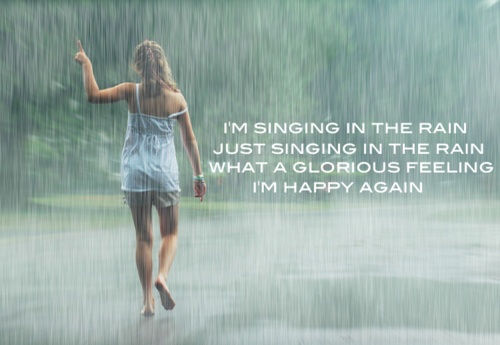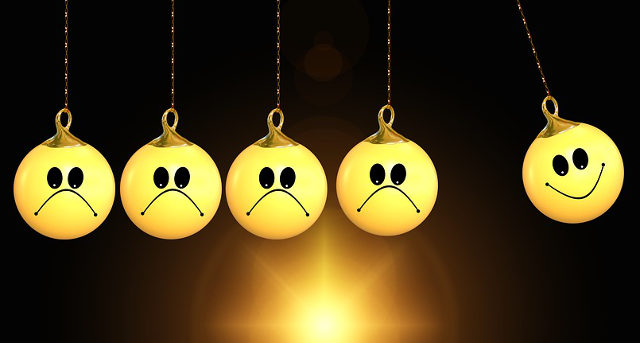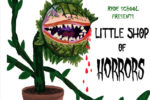Jonathan Dodd’s latest column. Guest opinion articles do not necessarily reflect the views of the publication. Ed
I’ve decided there just isn’t enough happiness in the world, and I want to do something about it. Most people, I think, when reading such a statement, would think two things. First, they would be distrustful of the writer, either because they might be from some weird religious organisation, or because they might be mentally unstable, or because they might be trying to sell something dodgy, like double glazing, or one of those baths you can sit in, with a door so you don’t have to raise your leg up to get in. How do you stop the water falling out? One of Life’s great mysteries, I imagine.
I can assure you that I’m none of the above things, which doesn’t mean anything. What member of some weird culty religion has ever admitted that what they believe is probably a bit ridiculous? I have to admit that I’ve never come across any religion that doesn’t fall into this category, and I’ve never met a religious person, of any persuasion, who’s willing to admit that the things they believe are, at best, a bit far-fetched.
The image of his religion is very mirror-like
Religion, is not a good way to cultivate happiness, partly because it doesn’t seem to be very high on their wish lists, but also a view of any congregation under any circumstances will reveal the same range of human types and attitudes that you’d find anywhere. There are happy religious people, but it strikes me that they’re the types who would be happy anywhere, and the same goes for the miserable members. Perhaps Man doesn’t so much make God in his own image, but the image of his religion is very mirror-like.

There’s no limit to the things that might make us happy, and no limit to the types of happiness out there. One problem with saying anything definitive about happiness is our total incomprehension of what it is and how it works and how even to recognise it. This calls for a small experiment. Are you comfortable? I’m guessing you’re going to answer yes or no, in various ways. But how do you know if you’re comfortable or not? Generally, I suggest, we’d check the messages transmitted to our brains by all the parts of our bodies, and see if any of them are crying out.
Happiness is something we feel physically as well as in our heads
That was fairly simple. But supposing I asked you the same question about happiness? I’m going to do that right now. Are you happy? Take your time. I’m going to guess that your answer will be either yes or no or maybe, also in different ways. If you are, that’s great, and if you’re not, I hope you will be, very soon. But how do you know if you’re happy or not? I’ve always been amazed by the number of people who look at me as if I’m weird at moments like these. I just am! – they say. Or – I just know I’m not! So I ask again. How do you just know this? And this stumps them. I just do!
![]()
What I’m trying to say here, probably very badly, is that happiness is something we feel physically as well as in our heads, just like pain, or anger, or resignation, or fear. I think these are all very common, so we get a lot of practice at telling the difference and noticing the symptoms. Fear is complicated, because the effects are very similar to excitement, or anticipation. Sometimes people get these mixed up, and that makes it difficult for them to try new things. I imagine it works the opposite way for some people, who might go running into battles or fights, in the mistaken attitude that it’s exciting.
These are a crucial part of our own personal training
All our emotions and states of mind are bound up with our bodies and behaviour. So there are very specific ways to tell if we’re happy or not, in love or not, and various other states. The trouble is that we don’t have enough experience sometimes, or we want things too much, and then persuade ourselves that it’s happening, thus over-riding the bodily sensations. And there’s always cross-over. The difficulty is recognising the symptoms and telling the difference. To my mind these are a crucial part of our own personal training to know ourselves and to deal practically with the world and what it offers us.

So, assuming you agree with me here, how do we do this? I’m suggesting two simple and practical thoughts. The first one is to turn the silent and unspoken parts of our feelings into language. We can just ask ourselves how we feel. The second part is to answer ourselves. Today I’m feeling quite happy. I know this because my heart is going boom diddy boom diddy boom boom boom, and I keep wanting to sing The Sound of Music, and colours all seem brighter, and I find myself searching for faces that are happy too, so I can smile at them. Perhaps my legs feel lighter, my steps springier, my internal organs might be slithering around luxuriously, or my skin is fizzy or my fingers feel extra-sensitive.
This is how we learn
I don’t know how it might be for you. I just made that lot up, although I started feeling all those things while I was writing them down, and I’ve noted which ones are still like that, for future reference. This is how we learn. We ask a question, we search for a definition, and we start making a list of things until it feels like we’re getting close. So the next time we ask, we can check how we feel against the list and previous times, and we learn to calibrate. We also learn how to feel it rather than fake it. We’ve all met people who put on a happy face when they’re crying inside, as if they’re singing one of those terrible show tunes.
![]()
What I haven’t said yet is that the same process works for most other things. We could cross out happy above and replace it with miserable, and it would work the same way, and those who have had terrible experiences are familiar with the micro-managing of those tiny shoots of progress back towards something approaching normal life. In those cases they’re calibrating to survive, rather than to assess happiness. What I’m suggesting is that we should be doing this all the time, in the background, learning about how we live with and react to whatever happens, and noticing what’s good and what’s dangerous, on the basis of those reactions.
A life that does or doesn’t contain quality or depth
We’re all familiar with the detective whose nose tells him they’ve arrested the wrong man, and the wife who suspects something’s not right, as well as people in various states and stages of denial, and these are simply well-understood signals that exist all the time, in all of us. The way to get experienced with them is to ask the questions and listen to the answers, to listen to our own bodies and emotions, and to trust our instincts. It’s not necessarily going to make us better, but it will give us the opportunity to become wiser and better able to cope, from day to day, as well in extreme circumstances.

I also think it can help us to attune ourselves with others, because it makes us better able to read their faces and interpret their emotional state. As we collect a large vocabulary of emotional states within ourselves, we’re better able to help others who haven’t gone down that road. And knowledge is power. Obviously. Because the understanding and retention of experience helps us to notice things that aren’t working, and start thinking about ways to change. There’s a long distance, and quite a lot of travelling, between someone who maybe used to binge-drink, behaving as if alcohol was magnetic and swallowing as much as possible, and a knowledgeable beer-connoisseur, or the person who has the occasional drink, but always something good. There are health implications in there, and wisdom, and appreciation of quality, and many other elements of a life that does or doesn’t contain quality or depth.
The more you do it, the more you gain
I think we owe it to ourselves to know ourselves, and we should spend time getting to know how we work and the connections between the different parts of ourselves. The more you understand about what makes you happy, the better you recognise those things that do it for you, and the more likely you are to find and appreciate them. Who doesn’t want to be better at being happy? It’s a fascinating hobby, and a lifelong study programme, it’s constantly available, and it’s free. And the more you do it, the more you gain.

Are you happy? How do you know? Think about it.
If you have been, thank you for reading this.
Image: Mediaprizm under CC BY 2.0
Image: Eli Christman under CC BY 2.0
Image: maxpixel under CC BY 2.0
Image: httpwwwyoumeflickrcom under CC BY 2.0
Image: NOAA’s National Ocean Service under CC BY 2.0
Image: derekgavey under CC BY 2.0
Image: pixabay under CC BY 2.0





